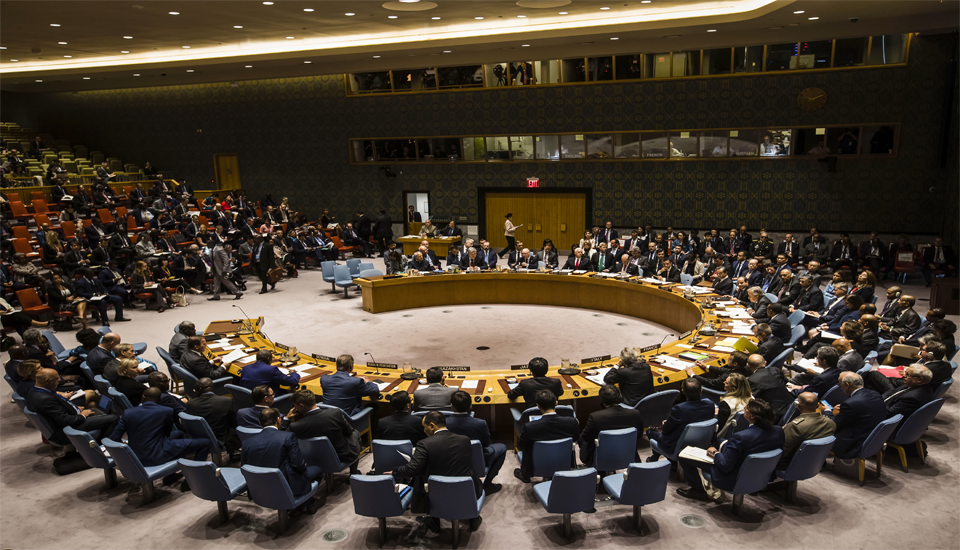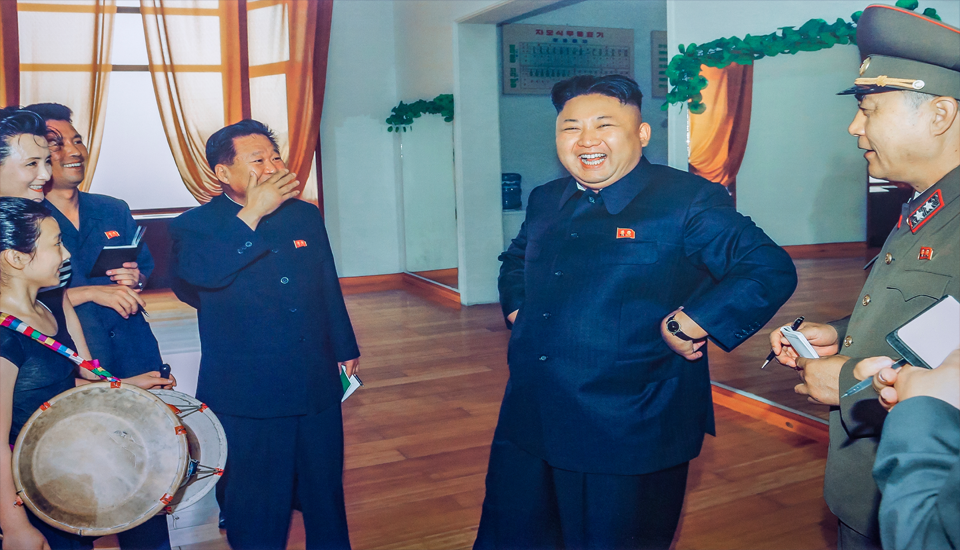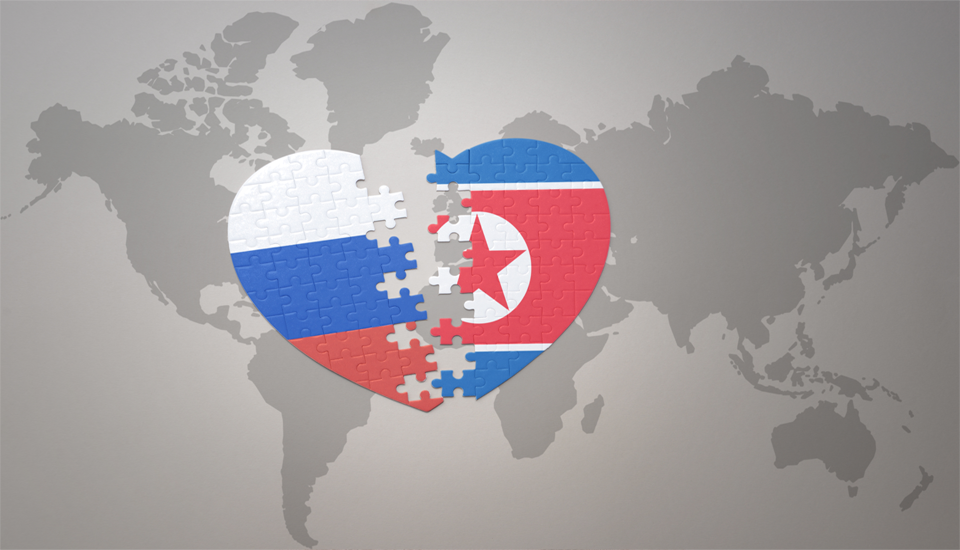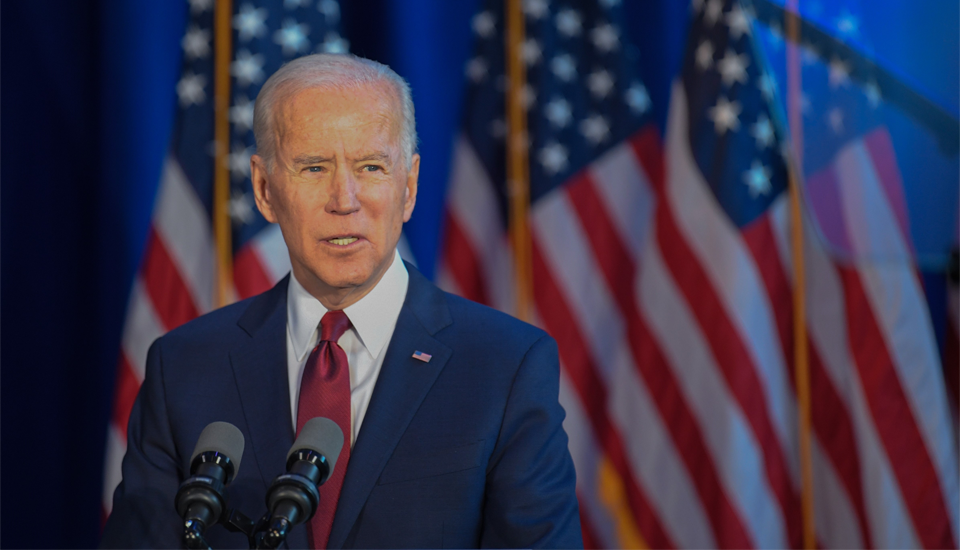
Divining the North Korean Nuclear Problem in a Multipolar World
Commentary | December 16, 2022
Taesuh Cha
Professor at Sungkyunkwan University
China and Russia vetoed U.N. Security Council draft resolution condemning North Korea's missile crossing the Northern Limit Line. Taesuh Cha, Professor at Sungkyunkwan University, claims that this signifies that great power competition will ultimately shape the trajectory of the North Korean nuclear problem. He expects that North Korea will highly likely continue its provocative behavior with confidence, given its political backing from China and Russia. As the evolving strategic conditions make the prospect of denuclearization much dimmer than they already are, Dr. Cha highlights the need to observe Washington's new approach to the North Korean issue, instead of pursuing a policy of strategic patience toward North Korea.
A Paradigm Shift in the North Korean Nuclear Question in a Post-Unipolar Era
Before attempting to analyze the changes in U.S. strategy toward North Korea, one must first consider the structural transformations that have developed between the early days of the post-Cold War era to the present year. There are two important changes surrounding the North Korean nuclear problem. The first is the emergence of a multipolar international system, following the changing distribution of global power, and the second is North Korea’s de facto nuclear statehood status.
First, the nature of the North Korean nuclear problem has been fundamentally altered as new structural conditions in the international system usher in an era of hegemonic transition, with North Korea changing its strategies accordingly. In the last 30 years following the end of the Cold War, the North Korean nuclear problem was framed as a problem of a rogue state defying the U.S.-led liberal world order. In other words, North Korea was treated as an international pariah, violating the standards and norms as set by the United States and the wider “international community,” From this point of view, the interdependent nature of the security dilemma, which underlies the U.S.-North Korea relationship, was disregarded. With the predominant view being that Pyongyang should be punished for violating the principled norms held by the liberal world order, North Korea was treated as untrustworthy state and subsequently sidelined from diplomatic negotiations. Moreover, the U.S. sought to resolve the problem by punishing North Korea, including via economic sanctions and, sometimes, an active pursuit of regime change.
However, with the transition to a multipolar international system, the nature of the North Korean nuclear problem has evolved. Instead of being treated as an important facet in defending liberal international norms, such as preventing the proliferation of weapons of mass destruction and defending the Nuclear Nonproliferation Treaty regime, Pyongyang’s growing nuclear capabilities are now being considered as simply a chess piece in the larger strategic competition between America and China. Since March of this year, North Korea broke its moratorium and resumed launching missiles of various kinds. In the following November, North Korea fired a ballistic missile crossing the Northern Limit Line (NLL), a first since the division of the Korean Peninsula. In this context, despite North Korea’s provocative behavior, China and Russia’s veto blocking of a UN Security Council resolution intended to condemn North Korea, speaks volume. This signifies the effective demise of the non-proliferation norm, a crucial pillar of the U.S.’ post-Cold War liberal international order’s security dimension, and that great-power competition will ultimately shape the trajectory of the North Korean nuclear conundrum instead.
With a return to great-power politics, the Kim Jong-un regime has been revisiting its strategy by coming to a new realization of its own structural milieu. Emphasizing the advent of a “new Cold War” or “the change from the U.S.-led unipolar world into a multipolar world,” North Korea has stressed the importance of an arms buildup due to shifts in the region’s military balance, not just that between the two Koreas. In addition, as revealed by the U.S., North Korea has sought to form a new anti-U.S. coalition with other great powers that also share hostilities with Washington. Such efforts have been demonstrated, for example, by its purported provision of artillery shells to Russia, which has been struggling in its invasion of Ukraine. As a result, the North Korean nuclear problem is not only an issue to be dealt with by the international community through sanctions and other forms of economic and diplomatic punishment, but into a subject of political contestation and bargaining between the powerhouses of East Asia. North Korea has also demonstrated its willingness to take initiative in the region’s geopolitical competition, by consolidating its virtual trilateral alliance with Russia and China to counter the South Korea-U.S.-Japan alliance. In short, it seems likely that North Korea will continue its provocative behavior with confidence, especially given its political backing from China and Russia, whose support will disrupt or at least dampen any additional sanctions by the UN Security Council, even if the North were to conduct its 7th nuclear test in the near future.
Dimmer Prospects Ahead for North Korea’s Denuclearization
Second, not only has North Korea already declared its de facto nuclear status through its possession of nuclear warheads and the means to deliver them in 2017 but following the breakdown of the 2019 Hanoi summit, it has taken a significant step away from the goal of denuclearizing the Korean Peninsula. With its so-called “head-on breakthrough battle” declared in December 2019 still ongoing, North Korea has been on the offensive against both South Korea and the U.S. In particular, North Korea has been conducting a flurry of missile tests throughout this year, making the regime’s intention clear that its offensive posture is perpetrated to support its aspirations for a de facto nuclear power status, unbridled even by promises it made during the Trump administration.
For instance, on January 20th early this year, Kim Jong-un handed out instructions to “promptly examine the issue of restarting all temporally-suspended activities” and ordered a reconsideration of trust-building measures. Then, on March 24th, Pyongyang decided to break its own moratorium by launching its Hwasong-15 ICBM. This was followed by Kim’s declaration that North Korea will “take measures to strengthen and develop nuclear arms at the highest possible speed,” and stated that “while the fundamental mission of the North’s nuclear force is deterrence, its use can never be confined to this primary mission if any forces tried to take away the fundamental interests of our country.” North Korea went as far as to promulgate the “Law on Policy of Nuclear Forces” by the Supreme People’s Assembly on September 8th, declaring an extremely aggressive nuclear doctrine that includes preemptive nuclear attacks and asymmetric escalation strategies. If these changes in its nuclear strategy were to be combined with the development of low-yield tactical nuclear missiles, it is possible that this could lead to catastrophic results in a future conflict between the two Koreas, as the North may feel more inclined to use its nuclear weapons.
In his speech in September this year to the Supreme People’s Assembly, Kim Jong-un declared that North Korea was a nuclear weapons state and that this would not be up for negotiation. With Pyongyang criticizing that the U.S.’ North Korean policy is aimed at regime change, it is difficult to expect any meaningful negotiations between Pyongyang and Washington in the near future. Therefore, by closing itself off from negotiations, North Korea can be expected to try and secure leverage in arms control talks rather than denuclearization, by waiting for a regime change within South Korea and the U.S., while also “strengthening deterrence and accelerating the development and production of strategic and tactical measures for national security” under its second five-year plan to develop “defense science and weapon systems.”
Signs of a Paradigm Shift in U.S. Policy Toward the Korean Peninsula?
The goal of the Biden administration’s official policy toward North Korea, which was announced on April 30, 2021, is still the “complete denuclearization of the Korean Peninsula.” The U.S. maintains its traditional policy stance, which originates from its unipolar era, to induce North Korea to denuclearize through a mixture of sanctions and diplomatic negotiations. Until such goals are met, Pyongyang, from the perspective of the U.S.’ liberal international order at least, remains defined as a violator of international security norms. Biden’s so-called “calibrated and practical approach,” originally boasted to go beyond Trump and Obama’s North Korea policies, seems to actually be reverting to the Obama administration’s “strategic patience” by the end of 2022. Above all, not only has the U.S. persistently ostracized North Korea based on human rights and democracy grounds but it has also been preoccupied with other issues, most notably its strategic competition with China and the Russo-Ukrainian war. Although the U.S. has repeatedly hinted that it maintains an open attitude and would not attach strings to any dialogue, the reality is that Washington lacks concrete incentives to lure Pyongyang back to denuclearization talks since the breakdown of the Hanoi Summit in 2019.
As a last-ditch effort, Washington is pressuring Beijing by threatening to deploy more U.S. strategic assets to the region, and accused Beijing of neglecting to solve the North Korean issue during the U.S.-China summit talks held this November. To counter, Beijing has responded by stating that the U.S. should take into consideration North Korea’s legitimate security concerns. What can be discerned from this is the grim fact that the North Korean problem has increasingly been relegated to an ancillary issue for the hegemonic competition between the two superpowers, and that any real solutions to the problem are been slipping away.
Under these evolving strategic conditions, the fact that voices of concern demanding a new approach to the North Korean issue are nevertheless being raised, even inside the Beltway, should be observed closely. Noticeably, the rise of the realist “arms control school” requires special attention. A baseline belief of realists comes from a kind of “strategic empathy” that treats North Korea as any state actor whose actions are intended to, understandably, secure its survival. In other words, realists view North Korea as a “normal” country that is placed in a Hobbesian anarchic system. In this regard, nuclear weapons are nothing but a rational choice in terms of addressing North Korea’s security concern. As such, in a typical anarchic situation, the security dilemma arises from both the actions of Washington and Pyongyang, and any resolutions will require negotiations between the two.
For the arms control school, the solution to the North Korean nuclear problem, unpleasant as it may be, is to coexist with a nuclear North Korea, just as the U.S. has coexisted with the Soviet Union during the Cold War, and with China during the post-Cold War era. They believe that given the U.S. possesses a secure second-strike capability, the situation could be managed through a “balance of terror”. That is to say that realist thinkers believe that the post-Cold War liberal internationalist goals –including comprehensive verifiable irreversible dismantlement (CVID), final, fully verifiable denuclearization (FFVD), or regime change- are unattainable and that policies should be developed under the premise that North Korea will maintain its nuclear weapons for the time being. This is because they believe that the final and irreversible policy line that mainstream policymakers have long dreamed of is not only difficult to achieve but could also lead to overreach and increased risk. The arms control school also insists that the U.S. should make certain concessions to alleviate the North’s security dilemma, including declaring an end to the Korean War.
A noteworthy development is that Bonnie Jenkins, the U.S. Under Secretary of State for Arms Control and International Security, mentioned during the Carnegie Endowment’s Nuclear Policy Conference in October 2022, that the U.S. is willing to have various discussions on arms control with North Korea. Undersecretary Jenkins stated that “arms control can always be an option if you have two willing countries willing to sit down at the table and talk, and not just arms control but risk reduction, everything that leads up to a traditional arms control treaty and all the different aspects of arms control that we can have with them.” In a press meeting the very next day, the U.S. State Department officially dismissed the possibility of arms control negotiations, emphasizing that there are no changes in the U.S.’ policy goal of the “complete denuclearization of the Korean Peninsula.” Despite these denials, the fact that a senior U.S. official has publicly mentioned a relatively minor approach towards Pyongyang, such as arms control, is a meaningful event. In appearing to tentatively break away from the predominant denuclearization paradigm held over the last 30 years, such statements raise the need to closely follow-up on how the discourse over Washington’s North Korea policy will evolve in the years to come.■
■ Taesuh Cha is an assistant professor in the Department of Political Science at Sungkyunkwan University. He holds a B.A. and an M.A. in international relations from Seoul National University. He has served as a full-time instructor at the Republic of Korea Air Force Academy, a researcher at the Korea Institute for Defense Analyses, and a senior research fellow at Chung-Ang University. His works on foreign policy and international relations theory include “Whither North Korea? Competing Historical Analogies and the Lessons of the Soviet Case,” “Is Anybody Still a Globalist? Rereading the Trajectory of US Grand strategy and the End of the Transnational Moment,” and “Republic or Emprie: The Genealogy of the Anti-Imperial Tradition in U.S. Politics.”
■ Typeset by Junghoo Park, Research Associate
For inquiries: 02 2277 1683 (ext. 205) | jhpark@eai.or.kr
International Relations

A Decade Under the Millennial Supreme Leader Kim Jong-Un
Jeong Won Na | 12.December.2022

The Russia-Ukraine War and North Korea-Russia Relations
Seung-soo Hyun | 28.November.2022

Foreign Policy Recharged after Defusing MAGA: Biden’s Indo-Pacific Strategy and the Korean Peninsula
Byoung Kwon Sohn | 21.November.2022
LIST